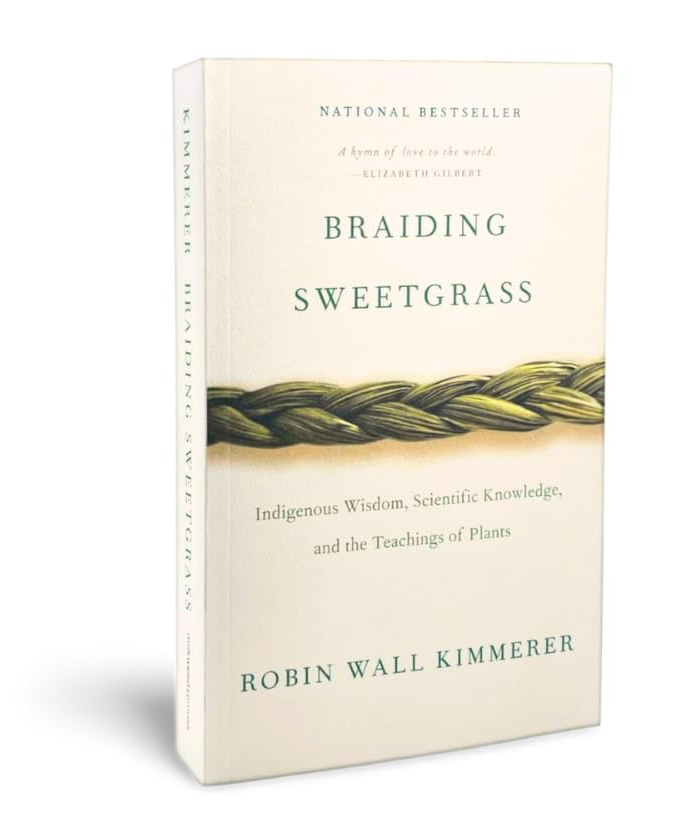Robin Wall Kimmerer, a botanist and member of the Citizen Potawatomi Nation, offers a perspective that bridges worlds often seen as separate: the scientific and the spiritual, the rational and the emotional, the human and the natural.
At its core, “Braiding Sweetgrass” is an invitation to reimagine our relationship with the earth. Kimmerer challenges the dominant Western narrative that views nature as a resource to be exploited, proposing instead a worldview rooted in reciprocity and gratitude. She writes:
“In some Native languages the term for plants translates to ‘those who take care of us.'”
This simple translation is a profound shift in perspective. It asks us to consider plants—and by extension, all of nature—not as passive objects of our use, but as active participants in a mutually beneficial relationship. Throughout the book, Kimmerer weaves together scientific observations with indigenous teachings, showing how these two ways of knowing can complement and enrich each other.
 |
Braiding Sweetgrass: Indigenous Wisdom, Scientific Knowledge and the Teachings of Plants
|
One of the most powerful themes in “Braiding Sweetgrass” is the concept of reciprocity. Kimmerer argues that our relationship with the natural world should be one of give and take, not just take. She illustrates this through numerous examples, from the traditional harvesting practices of indigenous communities to the symbiotic relationships observed in ecosystems. This idea of reciprocity extends beyond mere resource management; it becomes a way of being, a moral imperative that shapes our interactions with the world around us.
Kimmerer’s prose is itself a kind of braiding, intertwining personal anecdotes, scientific explanations, and cultural teachings. Her voice is at once poetic and precise, capable of evoking wonder at the intricate beauty of a lichen or the complex social life of trees. In one particularly moving passage, she reflects:
“Knowing that you love the earth changes you, activates you to defend and protect and celebrate. But when you feel that the earth loves you in return, that feeling transforms the relationship from a one-way street into a sacred bond.”
This sentiment captures the essence of Kimmerer’s philosophy: that our connection to nature is not just intellectual or practical, but deeply emotional and spiritual. It’s a relationship that, when fully embraced, has the power to transform not just our understanding of the natural world, but our very sense of self and community.
“Braiding Sweetgrass” is more than a book about botany or ecology; it’s a call to reawaken our innate sense of connection to the living world. Kimmerer challenges us to listen to the wisdom of plants, to learn from indigenous knowledge systems that have sustained relationships with the land for millennia, and to cultivate a sense of wonder and gratitude for the gifts of the earth.
In a time of ecological crisis, when the consequences of our disconnection from nature are becoming increasingly apparent, Kimmerer’s message is both timely and timeless. She offers a vision of a different way of being in the world, one that recognizes our deep interdependence with all forms of life. “Braiding Sweetgrass” is not just a book to be read, but a wisdom to be lived—an invitation to see the world anew and to find our place within the living tapestry of nature.



